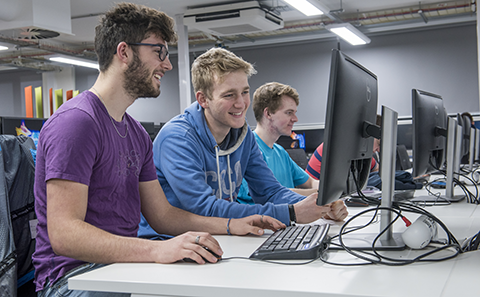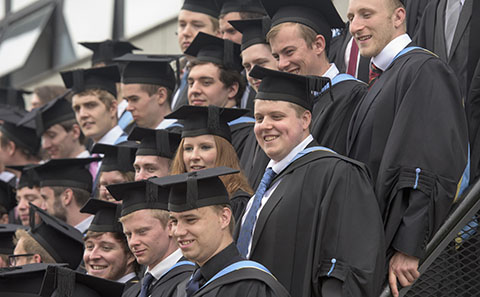
Research
Find out more about our research facilities

Find out more about our research facilities

We've transformed our laboratories for undergraduate students
Organised by the ECS Careers Hub, our annual Engineering and Technology Careers Fair attracts 85 companies and provides great opportunities for our students with leading employers.
Careers Hub